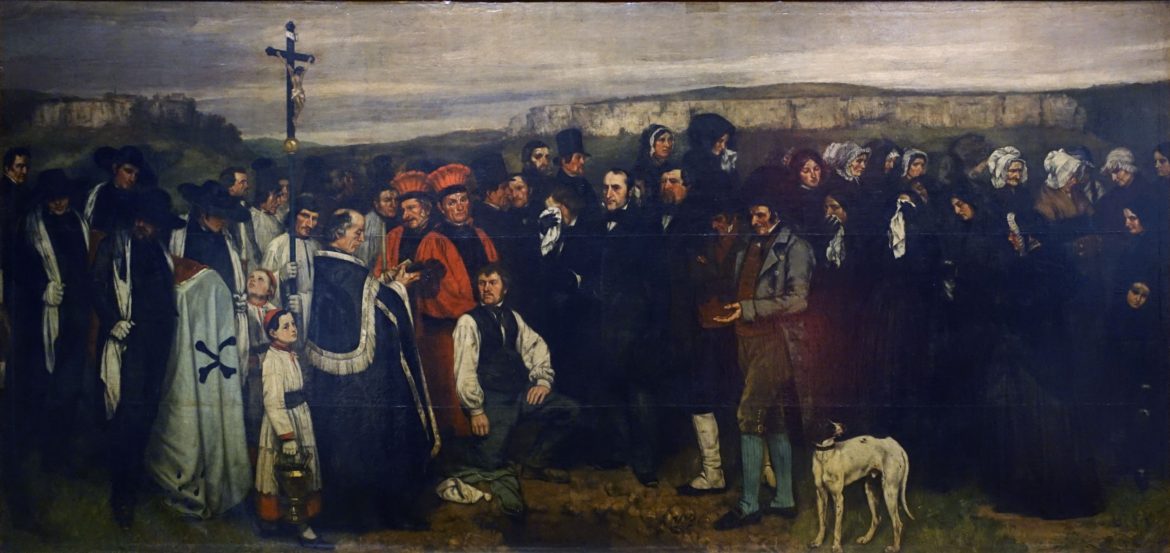There have been scores of articles about Covid-19’s role in triggering an increase in mental health disorders across the world.
I generally don’t post much of those for two reasons.
First, they’re everywhere, they’re daily, and you’ve probably already read them.
Second, anti-vaxxers and Covid-deniers constantly promote these studies and say, “See, all this mask stuff, all these precautions — they’re doing more harm than good because they’re triggering a mental health crisis.”
They seem to see the crisis as everything but the loss of at least 5 million lives, and I don’t want to lose focus of the loss of the most precious thing God has given to us on earth — those around us.
Yes, the collateral damage from Covid is horrible — the economic costs, the mental health crisis, the fracturing of society, the polarization that’s just a symptom of a much more perverse phenomenon of polarization on everything.
But the living are very quick to forget the dead, the dying, and the ones who will still pass away from Covid.
And when history looks back at things like the Spanish flu, what do we mourn?
Do we weep that suddenly people were told to wash their hands or wear, yes, a mask?
Or do we grieve the loss of lives?
That’s the first and foremost horror.
BUT.
The mental health effects of this disease are, indeed, absolutely astonishing, and that’s what this week’s New York Times piece, “Across the World, Covid Anxiety and Depression take hold” is so good at capturing.
It’s not just the acute nature of this disaster, it’s particularly the duration. The confusion. The curveballs.
If you’ve been affected by it, mentally, you’re not alone.
And by not alone, really not alone.
As a personal anecdote:
On Thanksgiving, my family Face-Timed a close family member, who was very healthy, caught Covid in June, and has been in out and of the hospital and close to death ever since.
His pain and suffering have been utterly enormous.
I was beyond grateful to see him, alive, on Thanksgiving, but gutted to see how he was spending that Thanksgiving.
In a rehab facility, trying to gain strength for a dangerous surgery.
Later that night, I read a story about Omicron, while I was sitting in our family room, and Judy Garland’s “Have yourself a merry little Christmas” came on, and I’ve always known that song was especially dear to troops and their loved ones, during World War 2, but for the first time, I actually felt the kind of exhaustion the world must have gone through for those six terrible years.
When will this end? All this? The unexpected deaths that are somehow still expected, wave after wave of variants, just like infantry. No break. As soon as one variant is beaten back, variant reinforcements come.
Read the words to the song, and you can see how they easily apply to the Covid crisis.
Have yourself a merry little Christmas
Let your heart be light
Next year all our troubles will be out of sight
Have yourself a merry little Christmas
Make the yule tide gay
Next year all our troubles will be miles away
Once again as in olden days
Happy golden days of yore
Faithful friends who were near to us
Will be dear to us once more
Someday soon, we all will be together
If the fates allow
Until then, we’ll have to muddle through somehow
So have yourself a merry little Christmas now
*****************************************************************************************************************************
That line, “until then, we’ll have to muddle through somehow” feels so real, doesn’t it?
Yes, we’ll just all have to muddle through this.
The church-Christianese thing would be to say “Don’t be so gloomy. Sing through this suffering because God is with you. Faith, not fear!”
But I don’t think Jesus would see Covid-19 as a particularly singing moment.
Lament is everywhere in the Bible, and we’re supposed to cry when others cry, and even if we weren’t supposed to, we couldn’t help but do it, right?
That’s how Jesus responded to pain and suffering on earth – with sorrow. That’s just the way we’re wired.
The history of the song is fascinating.
Hugh Martin wrote it for the 1944 movie Meet Me in St. Louis, and was actually a Christian. He originally wrote “if the Lord allows,” instead of “if the fates allow.”
The producers changed that line for the movie, but yes, as Christians, I think we all know everything is “if the Lord allows.”
We’re used to hearing that song every Christmas, but there’s not a version out there that captures the pathos of those lines like Judy Garland’s.
In fact, Frank Sinatra asked that some words be rewritten for his version because the original was too depressing, and Martin’s favored lines were even darker than anyone’s heard.
You know the part, “Let your heart be light/Next year all our troubles will be out of sight”?
Martin originally wrote: “It may be your last / Next year we may all be living in the past.”
So yeah, darker.
But along with my favorite carols, “Hark the Herald Angels Sing” and “O Come All Ye Faithful,” I’ll also be singing this one, or actually, listening to it late at night, trying to figure out how all this came to be, and when it might all end.
And then, of course, “Hark the Herald Angels Sing” because the spiritual peace Jesus brought then will, one day, be the land we inhabit forever.
I also like Norah Jones’ version, recorded last year, during the pandemic.
Instead of making it warm and fuzzy (as everyone besides Garland tried to do), she also gets the wistful melancholy, thank God, and it’s a moving performance. But still, yes, Garland’s will forever be the standard.
[Painting: A Burial at Ornans, Courbet]

